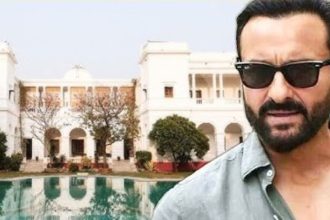A dissident faction of the Afghan Taliban said on Sunday negotiations with the new Taliban head Mulla Akhtar Muhammad Mansour had failed and now they would undertake their separate military operations against the US-led Nato forces and the Afghan government. The militant group had been in disagreement over who should succeed the former supremo Mulla Muhammad Omar, whose death was announced in late July.
Mansour, the Taliban’s former aviation minister, told his commanders that Omar had died two years ago and declared himself the new Taliban leader.
He said Taliban’s supreme decision-making body “Rahbari Shura”, or Supreme Council, had appointed him as the new leader. Others didn’t believe it and opposed his ascension.
The Taliban later formed a council of prominent religious scholars, the Ulema Council, to resolve the differences between the two rival factions.
A spokesman for the anti-Mansour faction said their talks failed on Saturday after Mansour told the Ulema Council that he would not accept any demands of the rival group.
“We remained silent for two months and wanted the Ulema Council to peacefully resolve our differences, but Mulla Mansour has told the Ulema Council he would not accept our demands,” Mulla Manan Niazi, a spokesman for the anti-Mulla Mansour faction, told The News.
“The demands were very simple. We wanted him to step down and let the Supreme Council appoint the successor to Mulla Omar by consensus,” he added.
Niazi said they would now launch their own militant operations against the US-led foreign forces and the Afghan government in Afghanistan.
“We don’t want the Islamic Emirate to break as thousands of Mujahideen have sacrificed their lives for establishing it,” he said.
“We will announce that working under Mansour’s leadership isn’t a Jihad. He hasn’t been appointed the leader of the Islamic Emirate of Afghanistan by consensus, therefore, we would now publicly oppose him,” he maintained.
The dissident commanders had aligned behind Omar’s son and brother, who had earlier opposed Mansour’s appointment. However, Niazi said the pair joined Mansour’s faction after being placed under financial pressure.
“Both of them were not prominent among the Taliban fighters, but we supported them and wanted to get all the divided Taliban factions united through them, as they belonged to Mulla Omar’s family,” Niazi said. “However they left us alone and joined our rival faction, headed by Mulla Mansour.”
He alleged that Omar’s younger brother, Mulla Abdul Manan, had been receiving money meant for the Islamic Emirate, but Mansour threatened to stop the flow of funds if he didn’t announce his support to him. Niazi said several senior members of the Leadership Council and commanders still oppose Mansour and would soon announce their own operations inside Afghanistan. Asked if they would launch a separate faction other than the Islamic Emirate run by Mansour, Niazi said they had founded the Islamic Emirate and were its real heirs.
“We and our people rendered many sacrifices for the Islamic Emirate,” he said.
Taliban sources said that a five-member delegation of Ulema Council of senior clerics including Maulvi Ahmad as its head and Hafiz Rasheed Ahmad, Maulvi Sheikh Ahmadullah Jan, Sheikh Qasim and Sheikh Abdul Sattar had initially held a meeting with Mulla Mansour and his close aides.
Then more Afghan clerics were added to the council to negotiate between the two rival sides but didn’t help. Sources close to Mansour said he had assured the Ulema council of all his cooperation but he would not listen to any proposal about changing his leadership status.





